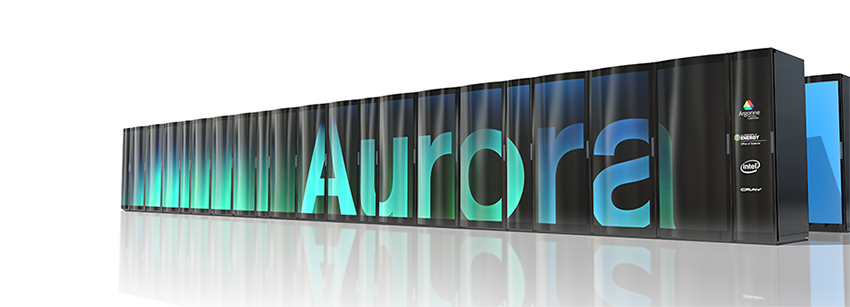June 24, 2016

by Benjamin Recchie
Timothy Williams, deputy director of science at the Argonne Leadership Computing Facility (ALCF), came to campus this month to follow up on Katherine Riley’s talk from a few weeks before. But whereas Riley came to encourage UChicago researchers to use ALCF today, Williams came to speak about using ALCF in the years to come, teasing the computing resources that will soon be available as its signature machine, Mira, is replaced.
ALCF has hosted many supercomputers, noted Williams—an IBM Blue Gene/L machine which reached full capability in 2006, Intrepid in 2008, and Mira in 2013. But three years is an eon in computer technologies; ALCF is already planning to phase Mira out in 2018. In its place will come two new computers, Aurora and Theta. Aurora will feature high-bandwidth on-package memory, a storage burst buffer, and be 18 times as fast as Mira, while consuming just three times as much power. But since Aurora won’t be operational until late 2018, ALCF is installing Theta to fill the gap, with an architecture that is a stepping stone between the two flagship machines.
ALCF devised the Early Science Program (ESP) to give researchers a chance to try out the new machines first, while letting the operators test out all aspects of the computer. The ESP for Theta is already underway, but Williams made a pitch for applications for the Aurora ESP. The ALCF staff will screen proposals for targeted science calculations, evaluating parallelization of the application today, plans for porting and optimizing for Aurora, and to cover a range of subjects and numerical methods. The ten chosen projects will receive the support of a dedicated postdoc, training and workshops, time on existing machines for development, and early access to the new equipment.
To give attendees a taste of what kind of research had already be accomplished with the ESP, Williams showed some projects that had been done when Mira was still new, such as a 3D earthquake fault systems simulation and a simulation of aerodynamic flow control. He also showed some of the Theta ESP projects: a large-scale simulation of brain tissue, a massive dark matter simulation massive dark-matter cosmological simulation that will also include baryons and hydrodynamics, and a study of the flow of air over wind turbine blades. Another project which might be familiar to UChicago researchers was the development of the WEST software package, used to predict the properties of new materials.
Researchers can learn more about the Aurora ESP on the ALCF web site. And check your e-mail: a call for ESP proposals will be made in July 2016, with a deadline in September.